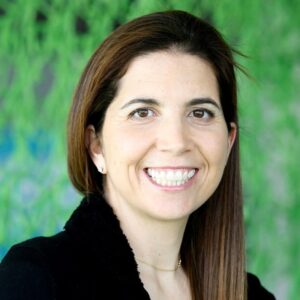Utrecht University and ODISSEI, national digital infrastructure for the social sciences.
In this talk, I aim to convince you that AI researchers should pay very close attention to the discipline of social science.
It is not a coincidence that many of the ideas behind modern AI were originally conceived of as approaches to studying human behavior. At the time, many social scientists considered these ideas too “crazy” to pursue seriously. But they are now coming into their own, not only as inspiration for advances in AI, but also as methods of improving our understanding of people and societies in their own right.
So, I will argue that if you would like to:
1. build systems that have a positive impact within our society;
2. improve our understanding of human behavior; and/or
3. get good ideas for improving AI engineering, you should consider becoming an interdisciplinary social+AI scientist.
Short bio
Daniel Oberski has a background in statistics, mathematics, and social science, and develops new models and new data collection methods that solve problems in applied fields, including but not limited to health care, economics, innovation studies, sociology, political science, psychology, ecology, and computer science. Take a look at the group website, https://hds.sites.uu.nl and the national infrastructure for the social sciences ODISSEI, https://odissei-data.nl. Daniel is happy to be contacted about your crazy ideas.
Scientific Director and one of the founders of ELLIS Alicante, co-founder and vice-president of ELLIS.
In my talk, I will first briefly present ELLIS Alicante, the only ELLIS unit that has been created from scratch as a non-profit research foundation devoted to AI for Social Good. Next, I will present a few examples of our work on uncovering and mitigating both human and algorithmic biases with AI. On the human front, I will present the work that we have carried out to study the attractiveness halo effect in the era of AI-based beauty filters, which will be published shortly in the Royal Society Open Science Journal1, and the research that we have done about the biases of the beauty filters that are so popular on social media2,3. On the algorithmic front, I will present FairShap, a novel pre-processing approach for algorithmic fairness based on Shapley Values4 and recent work on measuring structural unfairness in social networks5 and on uncovering the disparate impact of Deep Ensembles6.
Short bio
Nuria Oliver, Scientific Director and co-founder of ELLIS Alicante, and vice-president of ELLIS, will present on “Human-Centered AI.” With a Ph.D. from the Media Lab at MIT, Nuria is the first female computer scientist in Spain to be named an ACM Distinguished Scientist and ACM Fellow. She is also an IEEE Fellow and a Fellow of the European Association of Artificial Intelligence, and a member of the Academia Europaea, the Spanish Royal Academy of Engineering and corresponding member at the Mexican Academy of Engineering. Herpioneering work spans computational models of human behavior, human-computer interaction, and big data for social good. Nuria is passionate about using technology to improve quality of life and actively inspires young people, especially girls, to pursue careers in technology.


